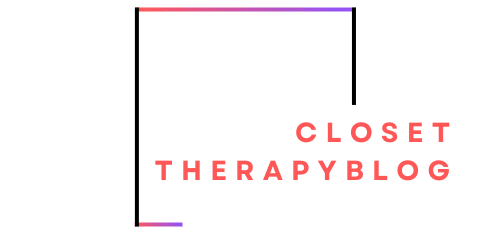As alluring as ever, the beauty industry continues to evolve, adapting to changing consumer preferences and incorporating the latest scientific advancements. From the rise of personalized skincare products to the growing focus on sustainable ingredients, it seems that both brands and consumers are always on the lookout for the next big thing in personal care. In this article, we will delve into the various aspects that currently make up the global beauty industry, the latest trends, and how consumers are shaping this highly dynamic market.
Consumer-Driven Trends in the Beauty Industry
Consumer preferences are one of the most critical drivers in the beauty industry. The brands that are able to anticipate, understand, and adapt to these preferences enjoy a decisive competitive edge. Regardless of the product, be it skincare, makeup, or other personal care items, the success of a brand often hinges on its ability to resonate with consumer values.
A lire également : National energy policy
In recent years, the demand for clean, natural, and organic beauty products has exploded. As consumers become more educated about the ingredients in their products, they are increasingly seeking out brands that prioritize safety and sustainability. Many are willing to pay a premium for products made with high-quality, ethically sourced ingredients.
Furthermore, inclusivity has become a non-negotiable aspect of beauty marketing. Brands that cater to diverse skin tones and types are enjoying tremendous success. This consumer-driven trend is a significant development in the beauty industry, with brands like Fenty Beauty leading the charge.
Dans le meme genre : What symbolic necklace should you give to a loved one ?
The Rise of Personalized Beauty
Personalized beauty is the industry’s response to consumers’ growing desire for products that cater to their specific needs and preferences. This trend is most evident in the realm of skincare, where brands are now offering customized solutions based on individual skin types, lifestyle, and environment.
Personalized beauty is also making its mark in the makeup industry. Brands are leveraging technology to offer personalized product recommendations, using AI-powered algorithms that analyze factors like skin tone, face shape, and personal style to provide customized makeup advice.
The emerging generation of beauty consumers values products that feel tailor-made for them, boosting the demand for personalized beauty solutions. The success of brands like Prose and Function of Beauty underscores the market’s appetite for customized care.
The Impact of Technology on the Beauty Industry
Technology has become a game-changer in the beauty industry. From augmented reality (AR) makeup trials to AI-powered skin diagnostics, technology is shaping the future of beauty in unprecedented ways.
For example, many beauty brands are now offering virtual try-ons, allowing consumers to test products on their digital selves before making a purchase. This has become particularly useful in the age of online shopping, where consumers can’t physically test products.
On the skincare front, devices that allow for at-home skin analysis and treatments are gaining popularity. These gadgets not only enable consumers to understand their skin better, but also allow them to personalize their skincare regimen.
Sustainability: The New Norm in the Beauty Industry
Sustainability is no longer a buzzword; it’s a necessity for any brand that wants to stay relevant in the beauty industry. Consumers are demanding transparency regarding product ingredients, packaging, and the overall impact of their purchases on the environment.
In response, many brands are shifting towards more eco-friendly practices. This includes using sustainably sourced ingredients, reducing packaging waste, and promoting recyclable or biodegradable packaging. Brands are also adopting cruelty-free testing practices and vegan formulations to align with consumer ethics.
The Global Beauty Market
The global beauty market is an ever-evolving landscape, shaped by consumer preferences, technological advancements, and regulatory changes. The industry is projected to grow significantly in the coming years, thanks to the rising spending power of millennials and Generation Z.
Asia-Pacific, in particular, is a major growth driver for the global beauty market. The region’s flourishing K-beauty (Korean beauty) trend is influencing global beauty regimes, while its rising middle class is contributing to the industry’s overall revenue growth.
Despite the challenges posed by the COVID-19 pandemic, the beauty industry has demonstrated resilience and adaptability, with brands quickly pivoting to e-commerce and virtual consultations to sustain their business during lockdowns. As we look to the future, it’s clear that the beauty industry will continue to innovate, adapt, and thrive in response to the ever-changing consumer landscape.
The Influence of Social Media in the Beauty Industry
Social media plays a monumental role in shaping the beauty industry. It not only provides a platform for beauty brands to showcase their products, but also allows consumers to share their experiences, reviews, and tutorials. This two-way communication has significantly impacted the way companies market their products and the way consumers perceive them.
Instagram, YouTube, and TikTok have become vital platforms for beauty brands to connect with their audience. Brands leverage influencers and content creators to reach potential customers, considering their influence on the purchasing decisions of followers. The power of social media in driving brand recognition cannot be understated. Brands like Glossier and Kylie Cosmetics owe their success to strategic social media campaigns and widespread influencer endorsements.
Moreover, social media provides consumers with a wealth of knowledge about beauty products. They can now easily access information about ingredients, see product demonstrations, and read reviews before making a purchase. This increased transparency is forcing brands to be more accountable and honest about their products.
In addition, social media has amplified the voice of the consumer, empowering them to demand better from the beauty industry. This includes calls for more inclusive product ranges, eco-friendly packaging, and cruelty-free practices. As a result, social media has become a significant driver of industry trends, forcing brands to adapt and evolve to meet consumer expectations.
The Future of the Beauty Industry
Looking forward, the beauty industry shows no signs of slowing down. Emerging trends, technological advancements, and evolving consumer preferences will continue to shape the industry’s landscape. As consumers become more educated and conscious about their purchases, brands will need to step up and align their practices with these new expectations.
Sustainability will remain at the forefront of the industry. As consumers demand more transparency and accountability, brands will need to invest significantly in sustainable practices. This includes everything from sourcing natural ingredients and developing clean beauty products to implementing eco-friendly packaging solutions.
The role of technology will continue to grow, with AI and AR becoming integral parts of the cosmetics industry. These technologies will not only enhance the shopping experience but will also enable brands to offer personalized care products to their consumers.
Furthermore, the importance of social media will continue to escalate. As a powerful tool to engage with consumers and drive brand recognition, it will remain a critical aspect of any successful beauty brand’s marketing strategy.
The global beauty market, which is currently valued at hundreds of billion dollars, is expected to grow consistently. Regions like Asia-Pacific, particularly countries like South Korea and China, will continue to influence global beauty trends. Despite potential challenges, such as economic uncertainties and regulatory changes, the beauty industry’s future looks bright.
In conclusion, the beauty industry is a dynamic and ever-evolving market, shaped by various factors such as consumer preferences, technological advancements, and social media influence. As we look ahead, it’s clear that this industry will continue to innovate, adapt, and grow, maintaining its allure and significance in the lives of consumers worldwide.











